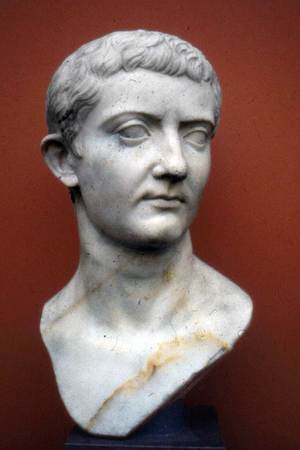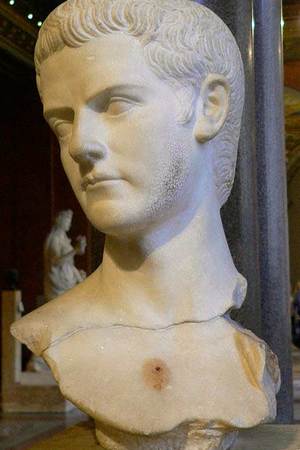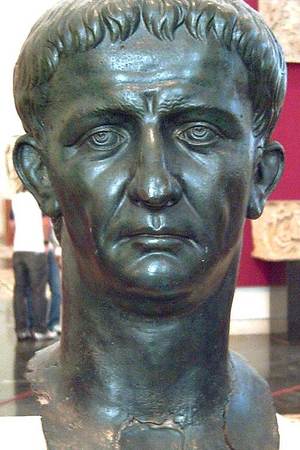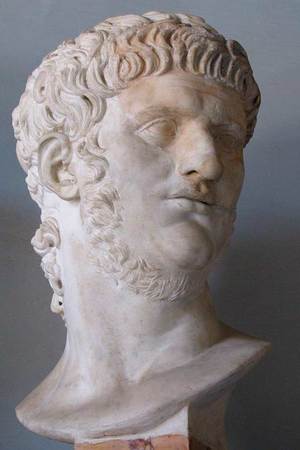Reign of the Julio-Claudian Dynasty
The Julio-Claudians were the first imperial dynasty of Ancient Rome, ruling from 27 BC to AD 68. The dynasty consisted of several Roman families, the most prominent of which was the patrician Claudian family. This line of rule is often noted for its aristocratic nature.
The founder of the dynasty is considered to be Julius Caesar, who adopted his great-nephew Gaius Octavius, giving him the name Julius Caesar Octavian. Octavian became the first Roman emperor under the name Gaius Julius Caesar Octavian Augustus.
Since Octavian had no male children, power passed to the children of his wife Livia from her first marriage to Tiberius Claudius Nero the Elder. From the moment Octavian adopted Tiberius Claudius Nero in AD 4, giving him the name Tiberius Julius Caesar, the main branch of the dynasty became the Claudians, specifically the branch of the Neros. The second branch of the Claudian family, descending from Tiberius's younger brother, Decimus Claudius Drusus, came to be known as the Drusii. Decimus Claudius married Antonia Minor, thereby connecting the family to both the Antonii and the Julii, since Antonia Minor’s paternal grandmother was the niece of Julius Caesar. It was to the Drusii branch that power passed after Tiberius's death. The first emperor from the Drusii branch was Caligula, the grandson of Decimus Claudius Drusus. Power then passed to Claudius, Caligula's uncle and the son of Drusus.
After Claudius, the emperor became Nero, the son of Agrippina, Caligula’s sister. Agrippina was married to Gnaeus Domitius Ahenobarbus, a member of the ancient plebeian Domitian family, which was granted patrician status during Augustus’s reign. After Claudius was proclaimed emperor, Agrippina became his wife. At her urging, Claudius adopted the son of Gnaeus Domitius, who then took the name Nero Claudius Caesar Germanicus. The Julio-Claudians also include some members of the Claudii Marcelli (another branch of the Claudian family), the Vipsanii, as well as the Pompeii, Cassii, Cornelii, Aemilii Lepidi, and Valerii Messalae, who were connected to the imperial dynasty through marriage.
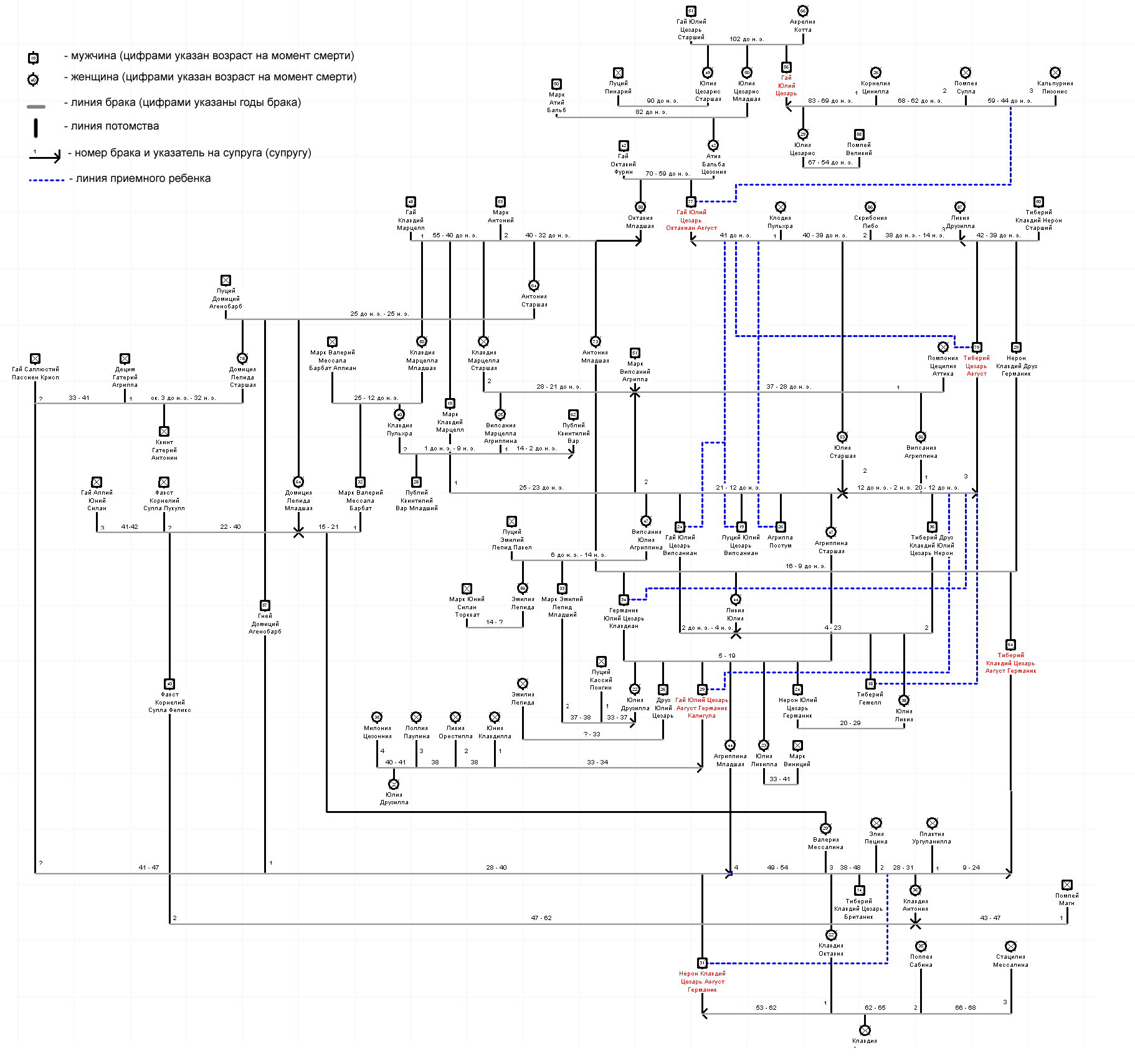
Tiberius
When Augustus died in AD 14, the Senate transferred Augustus's powers to Tiberius. The Rhine and Danube legions considered proclaiming Tiberius’s nephew, Germanicus (the son of his brother Drusus), as emperor, but Germanicus himself supported Tiberius's recognition as emperor. The new princeps reigned for almost a quarter of a century (AD 14–37), and under him, the comitia (popular assemblies) ceased to meet as elections for magistrates were transferred to the Senate, and the issuance of laws, which had begun under Augustus, took the form of decrees by the emperor. Additionally, the transfer of power to the princeps became lifelong from the time of Tiberius. Finally, Tiberius strengthened his control over Rome itself by concentrating the entire Praetorian Guard in the city under the command of his loyal prefect, Sejanus, and establishing the office of urban prefect (praefectus urbi) to maintain order in the city.
While Tiberius made every effort to ensure the welfare of the provinces, in Rome he behaved as a suspicious and cruel despot, relentlessly persecuting careless words, thoughtless actions, and especially republican sentiments (such as the condemnation of the historian Cremutius Cordus for his sympathy toward Brutus and Cassius). To this end, the concept of crimen laesae majestatis (offense against the majesty) was established as a specific category of crime. During this time, there were many executions and confiscations in Rome (Sejanus himself, Tiberius's chief aide in initiating political trials, was among the executed). The people did not love Tiberius, and he spent the last years of his life on the island of Capri (off the coast of Naples). Tiberius was suspected of having poisoned his own nephew Germanicus, whose widow, Agrippina, the emperor exiled to a deserted island where she ended her life by suicide. Their elder sons also perished, but the youngest, Gaius Caligula, was recognized by Tiberius as his successor.
Caligula and Claudius
After Tiberius's death, the Senate proclaimed Caligula as emperor (AD 37–41), who became infamous for various absurd acts and executions during his reign. The emperor declared himself a god and demanded worship of his statues, but his madness provoked a conspiracy against him, and he was assassinated.
The Senate considered restoring the republic or at least independently appointing the next emperor, but the Praetorians chose Claudius (AD 41–54), the brother of Germanicus, who had lived far from state affairs, absorbed in scholarly pursuits. Claudius was an honorable but somewhat unremarkable and indecisive man. His first wife, Messalina, became notoriously known for her debauched lifestyle; his second wife, Agrippina the Younger (daughter of Germanicus and Agrippina the Elder), managed to displace her stepson Britannicus and persuaded Claudius to adopt her own son from her first marriage, Nero, whom the Praetorians proclaimed emperor after Claudius’s death.
Nero
Tiberius and Claudius continued Augustus’s policies toward the provinces, and even Caligula sought to gain favor with the provincials. In the early years of his reign, Nero (AD 54–68) followed the better examples of the past, but soon the darker aspects of his character—heartlessness and vanity—came to the fore. His suspicion or vengefulness led to the deaths of his stepbrother Britannicus, his own mother, his wife, his tutor Seneca, and Burrus, who had helped him become emperor as prefect of the Praetorians. His greed drove him to destroy wealthy Romans and seize their property for his own treasury.
Nero was widely rumored to have been responsible for the great fire that destroyed half of Rome, with some even claiming that he watched the blaze from his palace while singing of the destruction of Troy. He blamed the Christians for this disaster, leading to their first persecution under his reign in AD 64, and demanded vast sums from the provinces for the reconstruction of Rome and other lavish projects.
Nero considered himself a great artist and even performed publicly as a singer, embarking on an artistic tour first in Italy and then in Greece, during which he handed over the government to his freedman, Helius. Nero also personally participated in chariot races. These actions led to a series of conspiracies and military revolts. When even the Praetorians abandoned Nero, the Senate declared him deposed, and the emperor ordered one of his freedmen to kill him, reportedly lamenting that a great artist was dying with him.
Related topics
Roman Empire, Emperors of Rome, Gaius Julius Caesar, Octavian Augustus, Roman Republic, Year of the Four Emperors
